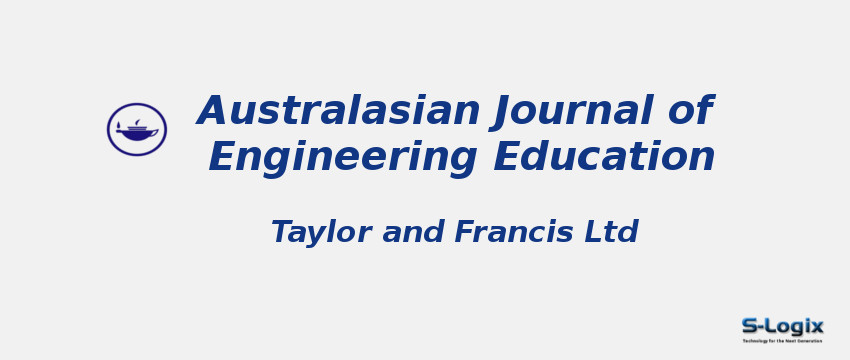Journal Home: Journal Homepage
Editor-in-Chief: Professor Sally MaleÂ
Print ISSN: 13245821
Electronic ISSN: 13254340
Abstracting and Indexing: Scopus
Imapct Factor 2024: 5.8
Subject Area and Category: Computer Science, Human-Computer Interaction, Engineering, Engineering (miscellaneous), Social Sciences, Education
Publication Frequency:
H Index: 17
Q1:
Q2: Education
Q3:
Q4:
Cite Score: 6.0
SNIP: 1.340
Journal Rank(SJR): 0.538
Latest Articles: Latest Articles in Australasian Journal of Engineering Education
Guidelines for Authors: Australasian Journal of Engineering Education Author Guidelines
Paper Submissions: Paper Submissions in Australasian Journal of Engineering Education
Publisher: Taylor and Francis Ltd.
Country: United Kingdom
